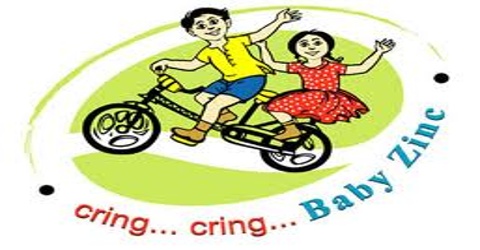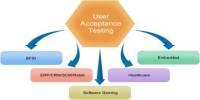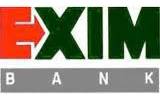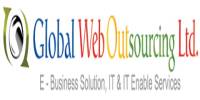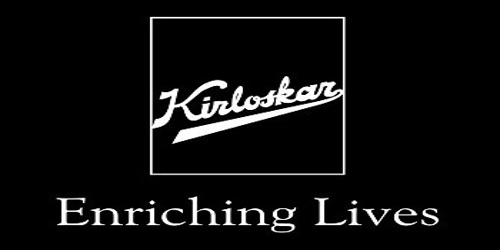The vital objective of this report is to analysis Marketing of Baby Zinc. Other objective of this reports are to understand how a new product is launched, learn how to develop a Marketing Plan for a pharmaceutical product, learn how to manage a specific brand and know how to develop promotional tools. Here also analyze how to develop and implement promotional plan. Finally focus on how brand loyalty is developed and to know the marketing policy and practice for a pharmaceutical product like “Baby Zinc”.
SCOPE OF THE STUDY
Even though there are a number of Hospital in Bangladesh, most people do not get the proper medication here and children are the major victims of this situation. The death rate of children are high not only because of the lack of treatment but also because the R & D departments of pharmaceutical companies in Bangladesh what are not that much developed to find new molecules to treat those children. There are lots of diseases that are responsible for the death of children and among those diseases; Diarrhea is in leading position in our country. Research has shown that zinc has a very effective impact on diarrhea for those children who are under five. Zinc treatment reduces the duration of diarrhea as well as the probability of future episodes of diarrhea and the necessity of hospitalization. From this point of view ACME is trying to establish this zinc as the format of Baby Zinc.
Although ACME is trying to develop awareness about Baby Zinc, some people are not taking it seriously. They cannot accept something new for their babies except ORS during diarrhea. Even though the sales report of ACME shows that the sales volume of Baby Zinc is progressive they found that there are many areas in Dhaka City and other districts where people are not that much aware of Baby Zinc. So, my study will help ACME to fill up the gaps in their promotional activities and also help them to find out the new ideas to spread their message and create more awareness among people regarding Baby Zinc and its usage.
ORIGIN OF THE REPORT
As I am a participant of BBA Program of School of Business, United International University, I have to complete internship for partial fulfillment of the BBA degree. Our honorable course teacher Prof. Dr. Habibur Rahman authorized the report “Marketing of Baby Zinc”, for individual internship report. As per his instruction, I have become interested to submit the report after completion of three months’ internship in the organization “The ACME Laboratories Ltd.”
OBJECTIVES OF THE REPORT
The main objective of the study is to learn how a business organization introduces a new product in the market & establish it as a brand through its effective marketing policies. The study is to have an overall idea of professionalism and realistic overview of an organization & thus to correlate my theoretical knowledge with practical perspectives.
Broad Objectives:
- To understand how a new product is launched.
- To learn how to develop a Marketing Plan for a pharmaceutical product.
- To learn how to manage a specific brand.
- To know how to develop promotional tools.
- To know how to develop & implement promotional plan.
- To know how brand loyalty is developed.
Specific Objectives: To know the marketing policy & practice for a pharmaceutical product like “Baby Zinc”.
Company profile
The ACME Laboratories Ltd. is one of the topmost pharmaceutical companies in Bangladesh. It manufactures & markets medicine of almost all types of dosage forms covering all therapeutic classes. Satisfying the local demand it also export medicines to about twelve countries. At present it has about 350 products with 150 generics. In 1950 it was started as a small company, but now it is a large company with huge number of employees as well as departments. Day by day it is also expanding its business in potential areas.
HISTORY OF THE COMPANY
The history of The ACME Laboratories Ltd. dates back to 1954 when a proprietorship firm was founded to manufacture ethical drugs. It started with the modest introduction of a few oral liquid products. The late Hamidur Rahman Sinha was the founder of the firm and was the main visionary of the organization until his sad demise in 1994.
The firm was converted into a private Limited company in the year 1976. Commercial operation at the modernized plant equipped with sophisticated and advanced facilities began toward the end of 1983. Many challenges were overcome successfully to transform the company from a small unit to what it is today.
ACME continuously seeks to expand its production facilities, add employees and increase its sales and marketing efforts. According to the latest statistics, out of about 300 pharmaceutical companies in the country, The ACME Labs is the second.
ACME has also endeavored to strengthen its network in international marketing operations to export its products abroad. We are optimistic about our continued growth and success.
Over the years our high achievement drive, our hard working and competent staff and confidence in our quality products have contributed to our growth. We have clear goals that inspire us and we believe to be possible for us to reach. We continuously strive to reach our goal of being the best in our field, which indeed is what ACME literally stands for.
QUALITY POLICY OF “THE ACME LABORATORIES LTD.
The ACME Laboratories Ltd has been working relentlessly with a vision to ensure Health, Vigor and Happiness for all and is on a perpetual quest for excellence. The quality policy of the Company is:
- Absolute commitment to the highest obtainable standard of quality product and service through excellence and concerted efforts of both employer and employee.
- The Company shall improve its market share and productivity to enhance profitability through monitoring of its performance on a regular basis and identify opportunity for continual improvement.
- The Company has adopted the ISO-9001 and WHO CGMP (Current Good Manufacturing Practice) standards. All employees must adhere to the documented procedures and SOPs (Standard Operating Procedure).
- The Quality Management System shall be adequately resourced with competent personnel, suitable premises, up-to-date technology and requisite facilities.
ACME’S GROUP OF COMPANIES
ACME Group is one of the leading and diversified global conglomerates in Bangladesh, with offices in all major cities, employing over 300+ employees and dedicated to bringing the highest quality products and services to our customers. ACME has an annual turnover of US $60 million with diversified interests in Pharmaceuticals, FMCG, Information Technology Services, Aviation Services, Printing & Packaging Services, trading Services, C&F Services, Apparels and more. The conglomerate has an outstanding record of all around excellence and growth in the relevant business activities.
The ACME Laboratories Ltd:
The ACME Laboratories Ltd, the pharmaceutical major and the flagship Company of the ACME Group, is a Manufacturer and Global exporter of Human, Herbal and Veterinary Pharmaceutical products. Our comprehensive Product List ranges from Antibiotics to Histamines to Vitamins. Certifications include: ISO 9001:2000, ANSI/ASQC Q9001:2000.
The ACME Beverage Ltd:
Introducing the newest member of the ACME Group, The ACME Agro vet & Beverage Ltd. is a FMCG business venture to manufacture fruit jtdce, mineral water and many more. These are manufactured and bottled in a state-of-the art processing factory using latest machines and Tetra-Pak facility.
The ACME IT Ltd:
An Information Technology Services company offering Software Development, Web Development, Multimedia Presentation, IT Consulting, Software Export, Software Marketing, Network Solutions, Training & Education, Joint Venture IT Business, Data Entry and more.
MARS Group:
An Aviation Services company offering Computer Reservation Systems, Travel; Agent Services and a Ticketing Tour Operator.
Sinha Printers Ltd:
A Printing and Packaging company offering medicine carton printing, label printing and a host of quality printing jobs.
AMBE Clearing Ltd:
A service-oriented business organization offering efficient Customs Clearing and Forwarding services.
ACME Distributions:
ACME provides International Trading Services.
DEPARTMENTS OF THE ACME LABORATORIES LIMITED
The ACME Laboratories Ltd. has a thirteen-member management team leaded by the Managing Director. There are two Deputy Managing Director and eleven Directors in the team as well. These thirteen persons represent six different divisions of ACME. These divisions are:
- Technical Division
- Marketing Division
- Information Technology Division
- Sales and Distribution Division
- Finance Division
- Human Resource Division
Technical Division:
ACME has a technical division which provides the technical support to reach the goal. This division works side by side with the marketing division. It lets the marketing division know what the factory’s current technical position is, what new machines ACME should buy to improve its productivity and maintain the existing machineries to keep the factory running. They also keep up-to-date information about the machineries of their competitors and also to adapt their strategies if required.
Marketing Division:
Marketing is the core of any company. The marketing division of ACME holds the major responsibilities for bringing and establishing any product in the market. There are several departments under this division which works together to reach the target. These departments are –
Product Management Department (PMD): This department plays a crucial role in building the positive image in the minds of the customers and also finds new business area to make the strong foot step. PMD develops marketing plan for a product maintain that portfolio through the whole process, from molecule search to bringing and marinating the products position in the market. PMD always stays up-to-date on the market and competition, they also develops product promotion literature and promotional items.
Marketing Services Department (MKSD):
A team of professionals continuously work here to co-ordinate and facilitate all other departments within the company. This department is actively involved in various in-house service oriented works, data collection, keeping and disseminating the data through proper channel and network, and providing logistic support. That is, MKSD maintains all the administrative work to smoothen the overall work the division.
Medical Services Department (MSD):
This department arranges scientific affaires and medical communications, such as, seminars, clinical meetings, news letters, etc with the medical or health professionals. They also gather information about the pharma market and any latest development in medical science. MSD maintains strong communication and relation with the key opinion leaders of medical profession for exchanging views that would lead the company to move ahead.
International Marketing Department (IMD):
This department is responsible for taking the products beyond the regional boundaries after satisfying the local demand. They constantly look for new market in the global arena and relentlessly work to create a positive image about their product in the minds of international customers.
Information Technology Division:
Information Technology Division maintains the overall network of the organization. They provide IT supports to every division and also responsible for the maintenance of those equipments. They constantly work for making the communication easier and less time consuming. They prepare IT budget to keep the division modern and up-to-date with new and latest equipments.
Sales and Distribution Division:
The main objective of this division is to increase the sales volume and to establish and maintain an effective distribution channel. They prepare the expense budget, justify territory designing, target share allocation, sales forecast, designing distribution channel, maintaining positive relation with every stages of a supply chain, etc.
Finance and Accounts Division:
The Finance Division is responsible for financing activities of ACME. They arrange capitals for investments, look for new sectors of: investment, makes monthly salary and payments, keeps track of the funds, maintains record of any due payments, unpaid bills and installments, and also makes budget for any long-term acquisition or daily operational costs.
Human Resource Division:
ACME believes that “People are our prime assets”. So this division has a huge responsibility to make these people happy with organization. They need to develop employee benefit plans, plans to motivate employees, offer a healthy and professional working environment. They also need to recruit new people as demanded by the organization.
The Plant
ACME’s modernized plant is located at Dhamrai, about 40 km N.W. of Dhaka, the capital of Bangladesh. While designing and constructing the plant, proper attention was paid to the latest concepts of cross contamination, air circulation and air handling, particle free finishes, equipment layout, process flow, hygiene and safety. Special care has also been in selecting machinery and laboratory instruments. The Plant has the most sophisticated machinery and equipment imported from abroad. As a whole, ACME’s Plant is a testimony to its basic commitment for manufacturing the highest obtainable standard of ethical drugs.
SOME GENERAL POLICIES OF ACME
ACME continuously follows some general strategies for establishing and maintaining its products.
Pricing Policy:
In pharma market pricing is not similar to the pricing of FMCG market. The prices of the medicines which are in the list of essential medicines, cannot be fixed by the pharmaceuticals, as those prices are fixed by the Drug Administration of Bangladesh. They cannot charge premium price for their product, as there are lots of competitors in the market. ACME generally follows competitors pricing policy, that is, they price of their gencrics based on the price of their competitors. They also follow cost plus pricing. ACME first calculates their cost and then sets their product price for achieving a specific level of profit margin.
Marketing Policy:
ACME follows a very simple marketing strategy. First, they develop a marketing plan for the product which they think will be profitable. In that marketing plan they describe the promotional plan for the whole year. Accordingly they develop promotional tools & provide them in the market through their field forces. They also need to forecast the sales and monitor the sales after launching the product. If their plan fails they take corrective measures to keep everything on track.
Distribution Policy:
ACME has eighteen depots all over the country. They distribute products from the nearest depot. The central depot provide products to all the depots according to their requirements.
Sales Force policy:
Sales force is one of the main strengths of ACME. So, they have yearly bonus and awards for top achievers. They also provide frequent and extensive training to the field force for their continuous improvement.
PRODUCT
Background of Baby Zinc Launching
ICDDR, B conducted a research project named “SUZY” (Scaling up Zinc for Young Children), which found that use of Zinc in childhood diarrhoea reduces the length and severity of diarrhea. The project was financed by Bill & Melinda Gates foundation. The project’s findings will contribute towards the achievement of the Millennium Development Goal-4 that aims at reducing child (under five) mortality by two-thirds by 2015. So the WHO & UNICEF approved the use of Zinc in conjunction with ORS in childhood diarrhea. After that Rodale Pharmaceuticals Laboratories & Nutriset, France-based pharmaceutical company, invent Zinc tablet as Dispersible Tablet form, which is easily administrable, cheap, and an easy-to-carry formulation with longer shelf life. The SUZY Project, with the assistance of a local advertising firm Dhansiri, prepared material for a mass media campaign to popularize the new dispersible zinc tablet.
Nutriset is the only patent of Zinc dispersible tablet in the world. In 2005, through an agreement between Nutriset & ICDDR, B, ICDDR, B bought the patent sub-license from Nutriset for Bangladesh. In another agreement among Nutriset, ICDDR, B & ACME, the formulation of Baby Zinc dispersible tablet is transferred to ACME & ACME gained the permission of local manufacturing & marketing of the medicine. This zinc dispersible tablet comes in our market as “Baby Zinc” on 23rd November 2006.
Product Brief
Generic: Zinc (as Zinc Sulfate Monohydrate)
Dosage Form & Strength: Dispersible tablet, Zinc 20 mg.
Indication: Baby Zinc is indicated for the treatment of diarrhoea with Oral Dehydration Salts (ORS) in children between 6 months and 5 years of age.
Dosage & Administration: Zinc should be given as soon as diarrhoea starts. Children (between 6 months to 5 years): 1 tablet once daily for 10 consecutive days. If the child vomits after giving zinc wait for one hour. If there is no further vomiting give the child another dose of zinc. or as directed by the physician.
Side Effects: No serious side effect is observed if taken in recommended doses.
Pack Size: Each box contains 10 x 10 tablets in blister pack.
Unit Price (MRP with VAT): Tk.1.75/Tablet
Prescription Status: OTC
Direction for use:
FEATURES & BENEFITS
| Features | Benefits |
| Baby Zinc is the adjuvant therapy with ORS in childhood diarrhea | ORS only dehydrates the body in diarrhea, it does not cure diarrhoea. But Baby Zinc reduces the length & severity of diarrhea & ensures quicker recovery whereas. Besides, Baby Zinc provides the children immunity against future episodes of diarrhea for at least three months. |
| It is in dispersible tablet form. | It is easily administrable. If one Baby Zinc tablet is kept in tablespoonful water, it dissolves quickly which children can swallow easily. |
| Vanilla flavored tablet | Children-loving |
| Longer shelf life | Retains the quality of zinc for longer time. |
| It is cheap. | Affordable even to the rural poor. Economica comparing to other formulations of zinc |
| An easy-to-carry formulation & available in a strip of 10 tablets. | Increases compliance to parents or caretakers. |
| WHO & UNICEF approved the use of Zinc with ORS in childhood diarrhea. | Proof of efficacy for the prescribers. |
Brand Slogan: Cring Cring Baby Zinc, Give your children with ORS in diarrhoea.
PRICE
One of the four major elements of the marketing mix is price. Price is the only element in the marketing mix that produces revenue. Pricing is an important strategic issue because it is related to product positioning. Furthermore, pricing affects other marketing mix elements such as product features, channel decisions, and promotion.
Pricing Strategy
To set the price company takes the following three strategies;
- Setting the price for the first time.
- Adapting the price
- Initiating and Responding to price changes
Setting the price
Before setting the price of a new product a firm decides where to position its product on quality and price.
Consideration in setting the price:
After setting its product in its market a firm sets its pricing policy. The factor that consider in setting the price are –
- Selecting the price objective
- Determining Demand
- Estimating costs
- Analyzing competitor price and offers
- Selecting a pricing Method
- Selecting the final price
- Adapting the price
Geographical Pricing
Geographical pricing may include –
- FOB Origin Pricing
- Uniform Delivered Pricing
- Zone Pricing
Price discount and Allowances (physiological pricing)
- Cash discount
- Quantity discount
- Seasonal discount
- Functional discount
- Allowances
Promotional Pricing
- Loss – Leader pricing
- Special event pricing
- Cash rebate pricing
- Warranties and service contracts
Discriminatory pricing
- Customer segment pricing
- Location pricing
- Time pricing
Initiating & Responding to price change
After developing their pricing strategies, companies may face situation where they may need to cut or raise prices.
Initiating price cuts –
Reason for price cut –
a) Excess capacity
b) Decline market share
c) Drive to dominate the market through lower cost
Risk in assuming this strategy –
a) Low quality trap: Consumer may think that quality is low.
b) Fragile market share trap: Its buys market share but brand loyalty. Customer will shift to the next lower price firms that come alone.
c) Sallow pockets trap: the higher price competitor may cut their prices and have longer staying power because of deeper cash revenue.
ACME’s pricing policy:
The prices of the medicines which are in the list of essential medicines, cannot be fixed by the pharmaceuticals, as those prices are fixed by the Drug Administration of Bangladesh. They cannot charge premium price for their product, as there are lots of competitors in the market.
ACME generally follows competitors pricing policy, that is, they price of their generics based on the price of their competitors.
They also follow cost plus pricing. ACME first calculates their cost and then sets their product price for achieving a specific level of profit margin.
As Baby Zinc is in the list of essential medicines, so its price is fixed by the Drug Administration of Bangladesh.
ACME offers several types of discounts, as outlined below.
Quantity discount – offered to customers who purchase in large quantities.
Seasonal discount – based on the time that the purchase is made and designed to reduce seasonal variation in sales.
Promotional discount – a short-term discounted price offered to stimulate sales.
PLACE
Distribution Channel of Baby Zinc
ACME can provide the right product at the right time through its strong distribution network. ACME has eighteen depots all over the country. They distribute products from the nearest depot. The central depot provides products to all the depots according to their requirements. The factory produces the product according to the accumulated requirements coming from the depots. The company always tries to make a harmony between demand & supply throughout the supply chain.
PROMOTION
Different Methods of Promotion
In the pharmaceutical industry, companies cannot market their product directly to the final consumer for obvious reasons. Instead, they have to promote their products through its channel of distribution. The main parties who are in the receiving end of promotional activities of pharmaceutical companies are doctors, physicians and chemist in drug stores. In ACME Laboratories Ltd, several promotional tools are used. They are (1) Samples, (2) Writing Pads, (3) Gift Items, (4) Literature, (5) Discounts.
- Samples: In traditional style pharmaceutical marketing, the company generally promotes its new product by providing free samples to doctors and physicians who can read about it, learn about its features and are free to test it on their patients.
- Writing Pads: This is a useful form of promotion in that it helps to inform, convince and remind the doctors about the products and its features every time they open the writing pad to write something down.
- Gift Items: This can be of a wide variety starting from pens, mugs, and paperweights to decoration pieces. These products are usually given as presents to doctors, physicians and sometimes pharmacists to serve as an incentive, reminder about the product. These gift items are given along with the literature and / or the pad.
- Literature: This gives a detailed description of the various features of the product, its contents, recommended dosage, advantages and disadvantages a user can get from using the product etc. It aims to differentiate the product from other competition and emphasize the products differentiating features.
- Discounts: This promotional measure is directed towards chemists or pharmacist. These discounts are given at various times during the life cycle of a product. They are given to encourage the chemist to increase orders for the product. There are many ways this can work for the pharmaceutical company. On the one hand, the price advantage entices chemists to buy this product instead of its competitors. Once they stock up on a particular product they will recommend the product to customers and even convince customers to buy that particular product instead of any other product of the same use. Chemists do this because they would want to finish its stock of that product which they bought to take advantage of the discount and also because they would make more profit by selling the discounted product rather than a non-discounted one. Another bonus given to chemists comes in the form of gifts. For example, if a chemist buys TK. 10,000 worth of goods from the company, they are given a dinner set or a wall clock as a gift.
PROMOTIONAL ACVITIES FOR BABY ZINC
Promotional objectives:
- To aware the common people to give Baby Zinc tablet with ORS in any diarrhoeal episode for their children (age between 6 months to 5 years).
- To motivate the chemists to give the customers Baby Zinc tablet while giving ORS for children.
- To motivate the doctors to prescribe Baby Zinc with ORS for children.
Promotional message:
The key messages for promotion of Baby Zinc are:
- Zinc in addition to ORS, for any childhood diarrhoeal pisode
- Zinc treatment can prevent future episodes of diarrhoea, but the zinc treatment must last 10 days.
Mass Promotion: As the ultimate objective of the ACME with Baby Zinc is to implement zinc treatment scheme for Bangladesh that will reach all children, most importantly those in greatest need-the poor and undernourished, that’s why they targeted the mass media as their vehicle to reach that goal.
Mass promotion is implemented through Dhansiri Media production House with the prior approval of SUZY (Scaling Up Zinc for Young Children) communication team. ACME, ICDDR,B and Dhansiri are the partners of this communication team.
The aim of communication campaign is to disseminate the message to all segments of the Bangladeshi population including health providers, parents/caretakers, opinion leaders & drug sellers (chemists).
The promotional tools are also quite varied. Those are-
TV and Radio Ad. : First, they selected television as their mass media vehicle to reach the people with their message. They broadcasted the Baby Zinc advertisement on BTV, on satellite channels like, Channel I, N TV, R TV & ATN Bangla. They also broadcasted the Baby Zinc advertisement on radio.
Billboard/Sign board: They placed billboard/signboard in different important places of Dhaka city as well as outside Dhaka.
Bus Branding : They started Transit Advertisement on inter city buses and also on the buses those roam around Dhaka City.
Wall painting: They exhibited wall paintings on sidewalks of major streets and avenues.
Poster, Sticker & Year calendar: They introduced poster, sticker & calendar in chemist shops, different medical institutions & doctors chambers.
Press Advertisements : They also give advertisements in different dailies.
Courtyard Meeting: In Sunamgong, they arranged Court Yard Meeting but it was a Pilot Study. If it succeeds they will arrange this sorts of meeting allover Bangladesh.
Folk Song: ACME arranged cultural programs like, Folk Songs in the village and crowded areas to aware people about Baby Zinc and its usage.
Radio & TV Program: They are broadcasting radio & TV drama serial.
Other promotional programs:
- Grant Launching Program
- Divisional Launching Program
- Press Conferences
- Press Articles
- Sponsoring sports & cultural program
- School program
At the same time, ACME informed and motivated doctors to use Baby Zinc on their patients through ACME’s own channel.
Promotional Literature : Literature was given to the doctors and chemists to have a detailed idea about Baby Zinc, so that they feel free to prescribe this therapy.
Free Sample: Free samples are provided to doctors, so that they can have a clear idea about Baby Zinc to use it on their patients and give feedback to the Baby Zinc group.
Writing Pads: Writing pads are also used here as a promotional tool to remind doctors about Baby Zinc while writing a prescription or something else.
Advertising in selective printing media (e.g. medical journal)
Scientific Seminar & Palli Chikitshak (village doctors) conference (collaboration between ACME & ICDDR,B)
Other Programs:
- Provide SUZY news letter to potential doctors
- Donation of Baby Zinc in flood affected areas
- Training program for Medical Representatives & Sales Representative.
Sales Promotion:
ACME sometimes has undergone sales promotion to occupy the chemists’ shelves at a time & to gain huge sales.
Problems with Baby Zinc Marketing:
Baby Zinc as a treatment for childhood diarrhea needs to be marketed to its target group like any other new products. The potential target group of this medicine is the poor people. So they need to design their messages to reach relatively poorer populations. In Bangladesh this will represent 70-80% of the population. Promotion of zinc among providers will be tailored to reach varied target groups, beginning with licensed allopaths (MBBS degree), lower-level trained health providers and then the unlicensed providers who serve the large majority of the poor.
Although the sales volume of Baby Zinc is progressive, there are many areas in Bangladesh, where people do not know about, even if some how they came to know what is Baby Zinc, they do not use it or serious about this medicine. This situation is a result of many factors, like illiteracy, poverty, lack of authenticity and so on. But whatever may be the factor, the main problem with this medicine is people arc not aware about Baby Zinc. They think this medicine is optional and only ORS enough for their children.
Regulatory restriction:
It was very convenient for the people in remote areas to collect Baby Zinc from their nearest grocery shops or tea stalls where pharmacies/chemist shops are not available. But the Drug Administration does not permit to sale Baby Zinc through grocery shops or small stalls other than pharmacies.
LEVELS OF AWARENESS
Before the launching of the new zinc dispersible tablet a pre-launch survey was conducted in 2006 by ICDDR,B. Thereafter, post-launch surveys are taking place every three months & will continue until May,2008. Thus far two post-launch surveys’ reports have been collected – one from December 2006 to February 2007 & the other from March to May 2007. In these nationally representative, cross-sectional cluster-sample surveys the target population was sub-grouped under three strata: city corporation (metropolitan), district municipality (urban) & rural populations. The respondents are caregivers of a child who has had a diarrhoeal illness of at least two days’ duration in the past two weeks.
Analyzing the data, it was found that with the passing of time, the use of zinc as a treatment for childhood diarrhoea has been increasing. In the pre-launch survey, it was found that only 7% of caregivers reported to use zinc & 90% of cases it was syrup, rather than zinc tablets. But the use of zinc tablets more than doubled to 18% during the second post-launch survey, and the use of syrup decreased significantly. The data of the second post-launch survey also shows that knowledge about zinc treatment in childhood diarrhoea increased tremendously, almost doubling compared to the first post-launch survey
The level of awareness of individual group of population is discussed below.
To the consumers (caretakers/parents of diarrhoea patients):
After huge campaigning for last one year, common people has known about Baby Zinc tablet but has not become aware of administering Baby Zinc tablet with ORS in diarrhoea for their children up to the optimum label. Till now, a large portion of people giving ORS to their children in diarrhoea but not giving Baby Zinc tablet. In some cases, they are giving both ORS & Baby Zinc but when diarrhoea stops, they also stop giving Baby Zinc as like as stopping ORS. But Baby Zinc is recommended to take one tablet each day for 10 days, although diarrhoea stops.
To the chemists (medicine sellers/dispensers):
Baby Zinc is available almost in all chemist shops & almost all chemists know about Baby Zinc. But the chemists are not yet motivated to give Baby Zinc tablet along with ORS to the customers who come to take ORS for the diarrhoea of their children.
To the doctors (medicine prescribes):
Doctors’ community has accepted the new invention of using Baby Zinc in conjunction with ORS in childhood diarrhoea. An eminent doctor termed “Baby Zinc as the Best Invention of this century” in a seminar. In different scientific seminars, eminent doctors of our country highly appreciated this medicine & they are prescribing the medicine in their regular practices. But the doctors’ prescription habit is not yet up to optimum level. All doctors are well informed about this medicine through mass media & continuous hammering by the medical representatives of The ACME Laboratories Ltd.
A mother/caretaker being interviewed to collect information on any side-effects after feeding Baby Zinc to her child
BABY ZINC COMMUNICATION CAMPAIGN: A CASE STUDY
Shafia is a middle-aged woman living in a remote village Karpasha in the haor area of Kishoregonj in Bangladesh. During the rainy season, in areas like this, the only method of communication is by boat and in dry season there is no option other than walking, Shafia has two daughters – nine years old Pakhi and three years old Shapla; she had a son who died few months ago from diarrhea. She works as a maid and can only afford a hand to mouth existence for her three family members. Like other parents in rural area Bangladesh she has no education and little understanding of keeping a hygienic environment for her children. As a result little Shapla suffers from diarrheal illness like her late brother. Whenever she falls sick Shafia brings ORS from the neighboring village, she is worried about her daughter’s frequent susceptibility to diarrhea. Shafia has also previously taken her to the village doctor but received no benefits from the treatment: after a few weeks her daughter again fell sick.
One Friday Shafia heard that the union Parishad Chairman had called all the woman of Karpasha to gather in this courtyard. Three young men had come to talk to them and Shafia along with around 30 other ladies, their kids and a few men, sat in a semi circle in the chairman’s compound. The men had come with the message from the cholera hospital in Dhaka about the treatment of diarrhea. Upon being asked how they take of their children during diarrhea, Shafia and the other participants replied that they give ORS and other fluids. The men spoke of a new treatment for diarrhea, to be used alongside ORS. Although ORS is essential during diarrhea as it dehydrates the body, it doesn’t actually stop the frequent loose stoles. There is a new medicine in Bangladesh called BABY ZINC so when a child becomes sick with any type of diarrhea they should treated both ORS and ZINC. He showed them pictures of how to take care of a child from six months to five years with diarrhea, and a strip of ten BABY ZINC tablets. Most importantly, the parents learned that the tablet not only treats the diseases, but also provide the child immunity against future episodes of diarrhea for three months. Shafia heaved a sign of relief that she had at last found a medicine for Shapla. But she was little confused about she gives the tablet to such a young girl. The young man demonstrated by taking a teaspoon, putting the tablet in it then adding few drops of water. Within half a minute the tablet dissolved and was ready to be fed to the child.
All the parents of Karpasha village whose children suffer from frequent diarrhea become very pleased to this new treatment and happily agreed it disseminate this message to people of other village. One month latter Shapla fell sick by diarrhea again but this time her mother gave her both ORS and the BABY ZINC tablets and she was cured in four days. Although Shafia stooped giving her ORS when the diarrhea stooped She continued giving BABY ZINC tablets every morning for a further six days as she had learned in the courtyard meeting For the next two months Shafia Found that Shapla was not getting diarrhea and released a deep sigh if she had known about this medicine earlier, she might have saved her son’s life!!!
Competitors Analysis
Baby Zinc is not the only zinc therapy in Bangladesh, other companies also manufacturing Zinc tablet & Syrup. Among those companies like Square, Delta, Pacific & Apex are producing Zinc dispersible tablet as like as Baby Zinc dispersible tablet & they are very aggressive in promoting their brands. They are introducing different promotional tools such as
- Sticker
- Poster
- Gift
& introducing new packing modes such as attractive display carton, individual strip with spoon etc.
There are also many manufacturers of plain Zinc tablet & Zinc syrup such as SK+F, Orion, Square, Beximco, Renata, Navana & General. Zinc syrup manufacturers also highlighting the advantage of syrup as syrup is easily administrable to the children.
So there are huge competitions for ACME with Baby Zinc. Although all these products are not with the target, they all work in the same way. So ACME should take promotional strategy analyzing all the competitors’ activities.
Conclusions:
In Bangladesh Pharmaceutical sector is one of the most developed high-tech sectors. After the spread of the Drug Control Ordinance- 1982, the development of this sector was accelerated. The professional knowledge, thoughts and innovative ideas of the pharmacists working in this sector are the key factors for this development. Due to recent development of this sector we are exporting medicines to global market including European market. This sector is also providing 95% of the total medicine requirement of the local market.
Although there are a number of pharmaceutical companies in Bangladesh, most people do not get the proper medication here and children are the major victims of this situation. The mortality rates of children are high not only because of the lack of treatment but also because the R & D departments of pharmaceutical companies in Bangladesh are not developed enough to find new molecules to treat those children. There are lots of diseases that kill lots of children and among those diseases, Diarrhoea is a leading cause of mortality in developing countries; it kills nearly 2 million children every year. Research under SUZY Project has shown that zinc provides a very effective treatment for diarrhoea among children under five years of age. Zinc treatment reduces the severity and duration of diarrhoea as well as the probability of future episodes of diarrhoea and the need for hospitalisation. The SUZY project has been, for the first time, providing zinc treatment for diarrhoea on a large scale, targeting the entire under-five-year-old population of Bangladesh. And with the help of 1CDDR,B and other foreign pharmaceutical companies ACME acquired the contractual obligation to stand beside the children with Baby Zinc, which is available at local market at a price of Tk 17.50.
Baby Zinc is a well tolerable medicine for children with vanilla taste. It contains 20 mg zinc sulphate. This dispersible tablet is used for the treatment of diarrhea for children aged from six months to five years. It reduces the length and severity of diarrhea and ensures faster recovery. Besides giving children immunity against diarrhea, Baby Zinc also prevents re-emergence of the disease.
Although ACME is trying to develop awareness about Baby Zinc, some people are not taking it seriously. They cannot accept something new for their babies except ORS during diarrhea. Even though the sales report of ACME shows that the sales volume of Baby Zinc is high, they found that there are many areas in Dhaka City and other districts where people are not that much aware of Baby Zinc. And this problem is created by some factors like income, education, age, number of family members etc.
Through the mass media campaign & active promotion throughout the last one & a half years, Baby Zinc has been reached almost to all sectors of Bangladeshi population. But the practice of giving Baby Zinc in conjunction with ORS for the children of 6 months to five years has not yet been reached to the optimum level. From the survey report of ICDDR.B it is found that consumers’ (specially parents/caretakers) knowledge about Baby Zinc treatment in childhood diarrhoea is increasing tremendously. But it will take time to change the consumers’ attitudes from taking only ORS into Baby Zinc with ORS. So there must be continuous follow-up promotion through mass media as well as active promotion. Thus such a day will come when the consumers will be habituated to buy a Baby Zinc while buying ORS for any diarrhoeal episode of their children.
It is very much positive that the Ministry of Health & Family Planning has concrete working relations with the ICDDR,B and is continuing support to its activities for Baby Zinc communication campaign. If Baby Zinc can be successfully established for childhood diarrhoea in all levels of Bangladeshi population, this would substantially contribute towards the achievement of the Millennium Development Goal-4 that aims at reducing child (under five) mortality by two-thirds by 2015, as Bangladesh is committed to achieving this goal.
